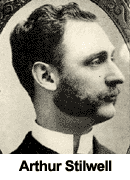History of Port Arthur
Before There Was Port Arthur
Port Arthur has celebrated more than 100 years as a Gulf Coast city, but its timeline is only a fraction of the greater history of the region’s inhabitants. The shores of Sabine Lake have been occupied more than 1,500 years; American Indians, primarily the Atakapas, were the earliest known settlers. The late 1700s brought the first visits from Europeans — English, Spanish and French. Most were explorers who did not stay, but in the 1800s the lake became an avenue for trade. Among the traders was Jean Laffite, and legends of hidden treasure have lingered in Southeast Texas.
The earliest attempt at permanently settling the area was the community of Aurora, located in what is now historic Port Arthur. Some lots were sold around 1840, but the project failed to take off. The area was abandoned by the time Port Arthur was established.
Port Arthur’s Founding and Early Years

Stilwell began settling the city in 1895 with financial assistance from Dutch investors. The founder of what is now Kansas City Southern Railroad envisioned Port Arthur as the southern terminus for his new railway, a center for trade and tourism. The city dates its official beginnings to its incorporation in 1898.
By that time Stilwell had established the Port Arthur Channel and Dock Co., which began cutting a canal along the western edge of the lake to deep water at Sabine Pass. The port was opened for seagoing shipping with the arrival of the British steamer Saint Oswald in August 1899.
Pioneers arrived by the hundreds and began building homes and opening businesses. Stilwell’s contributions included the Sabine Hotel on Lakeshore Drive, a natatorium to serve all the residents and an Export Pier into Lake Sabine. He also brought 300 Dutch colonists to begin a new life as farmers in this rich coastal prairie. Though many of the Dutch names have been lost to Port Arthur, their cultural contributions are still found in nearby Nederland.
John Gates Takes an Interest

With this inauspicious beginning, Gates became the moving force in the development of Port Arthur. Aided by the effects of the Spindletop Gusher in 1901, he built the Mary Gates Hospital in 1909 and founded the Port Arthur Business College (now Lamar-Port Arthur) the same year. Gates built a magnificent home on Lakeshore Drive at a cost of $50,000.
The Oil Boom
The eruption of the Lucas Gusher at Spindletop in 1901 changed the fate of Port Arthur. The port quickly began to serve the needs of the new petrochemical industry, and companies such as Gulf Oil Corp. in 1901 and Texaco in 1902 set up refining facilities in the city. By 1957 Port Arthur was known as the center of the world’s prosperous oil refining facilities.
A Patchwork of Communities
What is now called Port Arthur encompasses what were originally a number of different communities established at different times for various purposes. Among those that have been incorporated by the city over the years are Griffing Park, Pear Ridge and Lakeview. The names remain in common use. Two others, Sabine Pass and Port Acres, are still often regarded as self-contained communities, and Sabine Pass in fact has its own school district, water district, port authority and zip code.
Port Arthur’s nearest neighbors in Jefferson County are Nederland, Port Neches and Groves, all of which have rich histories of their own.
Celebrities from Port Arthur
A number of Port Arthurans have left their impact on the country in the arts, sports, politics and business. Easily the best-recognized internationally is rock legend Janis Joplin, but other names of note include artist Robert Rauschhenberg, Congressional Medal of Honor recipient, the late Lucian Adams, Texas Gov. Allen Shivers, Olympic athlete Babe Zaharias, football coach Jimmy Johnson, football player Joe Washington, Jr., “Gone With the Wind” actress Evelyn Keyes and businessman Mack H. Hannah, Jr. These and many others are honored in the Museum of the Gulf Coast.




